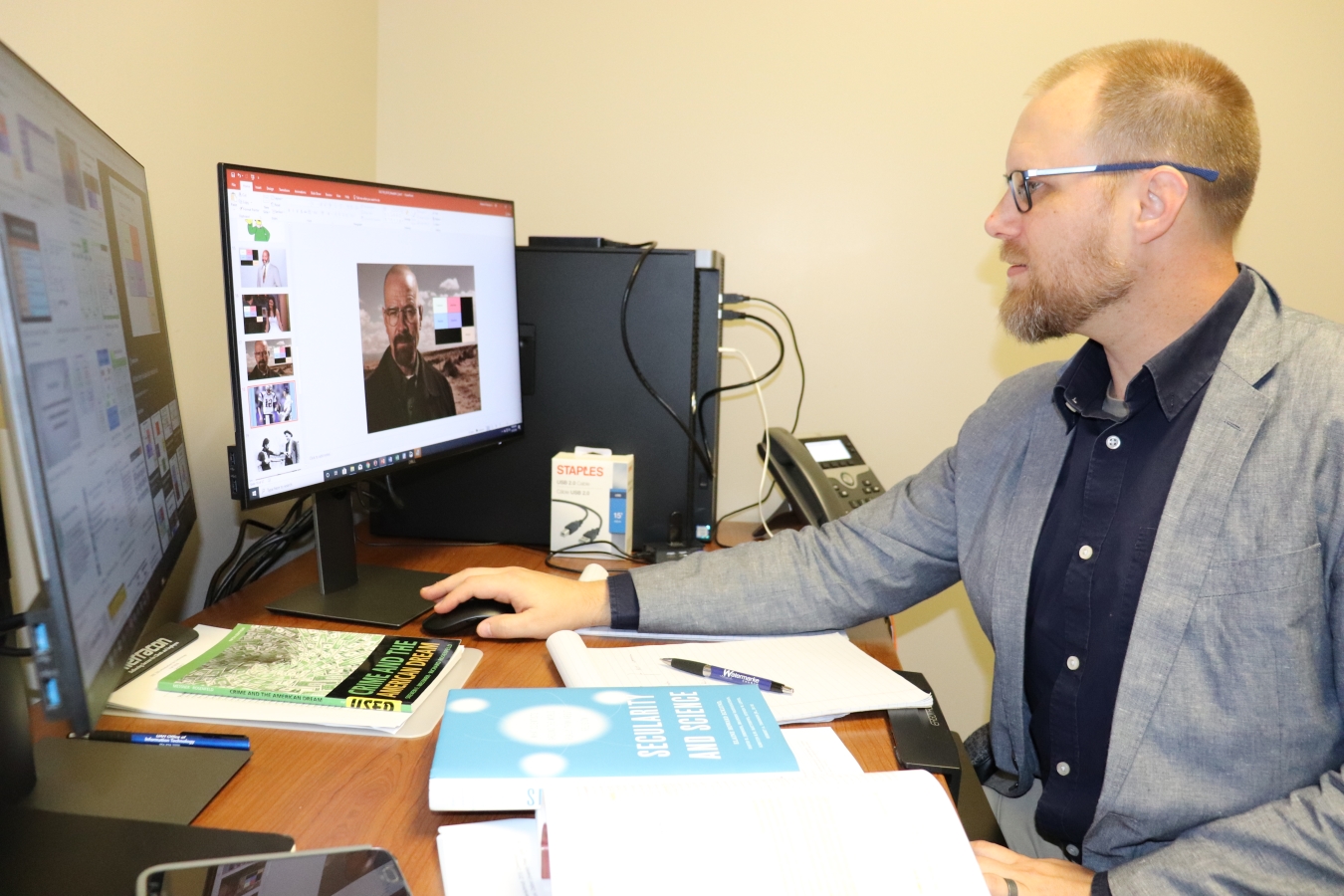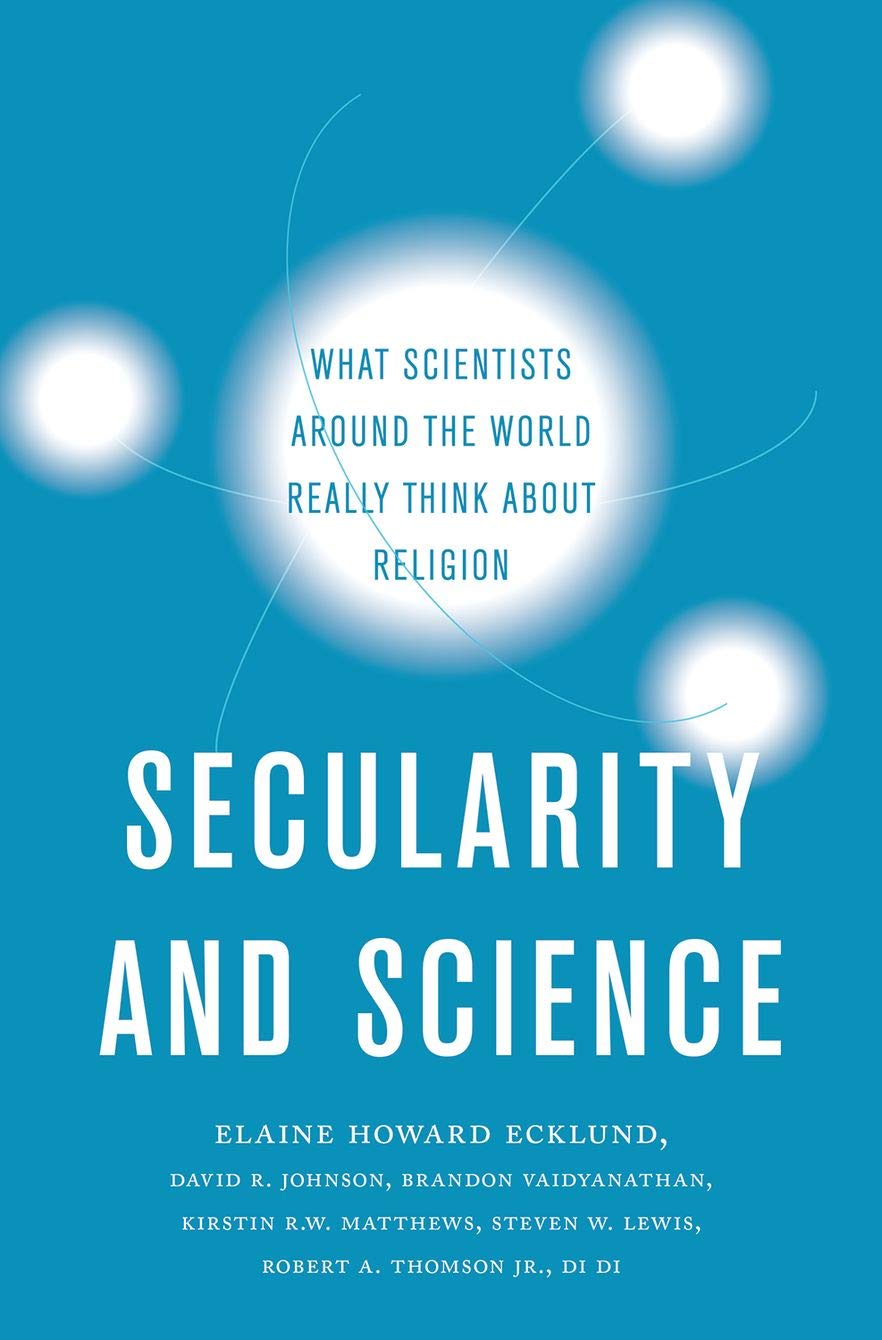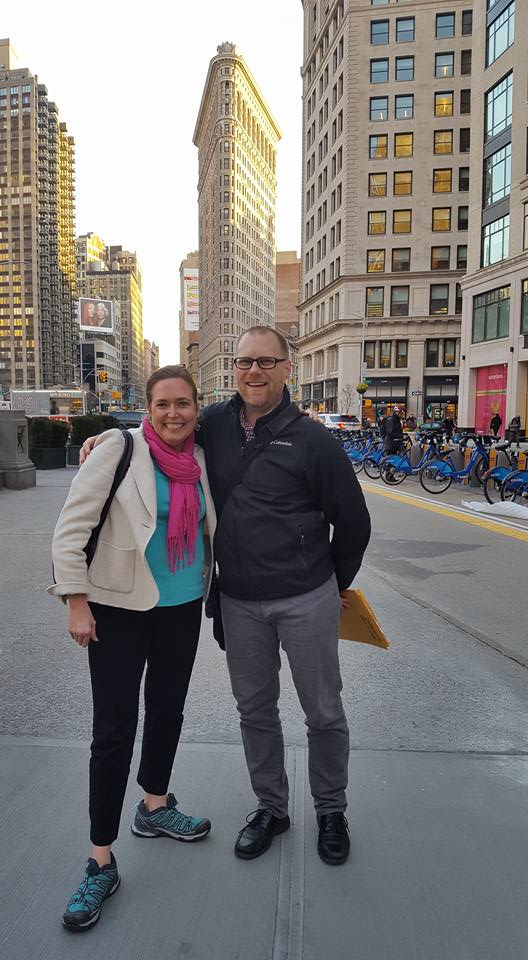
Dr. Robert Thomson preparing for Intro. to Criminology .
From biographical movies like “Extremely Wicked, Shockingly Evil and Vile” to television documentary series like “Making of a Serial Killer,” our obsession to understand crime continues to grow. Here at The University of Alabama in Huntsville, you can indulge your need to study criminology by enrolling in courses such as Intro to Criminology, Religion and Crime, or White Collar Crime- lead by our newest Assistant Professor of Sociology, Dr. Robert Thomson.
Joining us in Fall 2019, Dr. Thomson completed his Ph.D. in Sociology at Baylor University in 2017, focusing on the intersection of crime, religion, and social inequality. His primary areas of interest include criminology, social stratification, quantitative methods, and religion in the public sphere. “I decided to study Sociology because of a deep desire to address social problems and inequality. And it was in criminology that I found a venue to research some of the pressing issues of racial and social injustices of our day.” says Dr. Thomson. His dissertation examined if religiosity had an influence on the perception of police behavior. “I also compared the influences of both media consumption and political affiliation.” His research has been published in journals such as Deviant Behavior, Journal of Drug Issues, and the Journal of the Scientific Study of Religion.
Dr. Thomson’s current research includes a grant-funded project titled, “Black or Blue? A Pilot Study of Religious and Political Sources of Moral Attitudes Towards Police and Protest.” His pilot study seeks to “understand the perceptions of police and emerging protest movements, such as Black Lives Matter, Blue Lives Matter, Antifa, and white nationalism,” —among both black and white Christians in the US. Thomson plans to “study how religion and politics frame responses to incidents of police-minority violence, as well as attitudes toward and participation in social movements responding to racial and economic injustice.” The research uses specific occurrences including the Charlottesville Riots. “The research is in its early stages, but I am interested in differing uses of the Bible and scripture to reflect and motivate one’s opinions.”
Thomson’s research not only looks at the intersection of religion and crime but also the exploration of religion in science. Dr. Thomson published a book, Secularity and Science: What Scientists Around the World Really Think About Religion (Oxford University Press) alongside several other scholars at Rice University. Drawing on extensive surveys and interviews with scientists in eight national contexts, the research challenges some western assumptions about the relationship between science and religion.


If students are looking to study sociology and criminology this academic year, Introduction to Criminology will explore understanding theories on why crime happens, the making and breaking of laws and society’s reaction, and pattern of crimes based on location, social influences, culture, and more. Students looking to take Religion and Crime will seek to answer questions about how religion either lowers crime or creates a culture of crime. They will also study religiously motivated crime [terrorism] and hate crimes based on religious identity. In the Spring, students can take White Collar Crime that will examine cases of corporate fraud- including Wolf of Wall Street and Madoff’s investment scandal.
The College is delighted to have Dr. Thomson join our Sociology Department, “Even if you are not a sociology major, sociology as a minor can be used in every discipline. All workplaces have gender, racial, sexuality issues, differences in power and status... Sociology is the way to explore these issues.” Students who decide to study Sociology and focus in Criminology can find careers in the criminal justice system - including corrections, enforcement, and law. Our program also prepares students for careers in academia and politics.
Questions?
Department of Sociology
Phone: 256.824.6190
